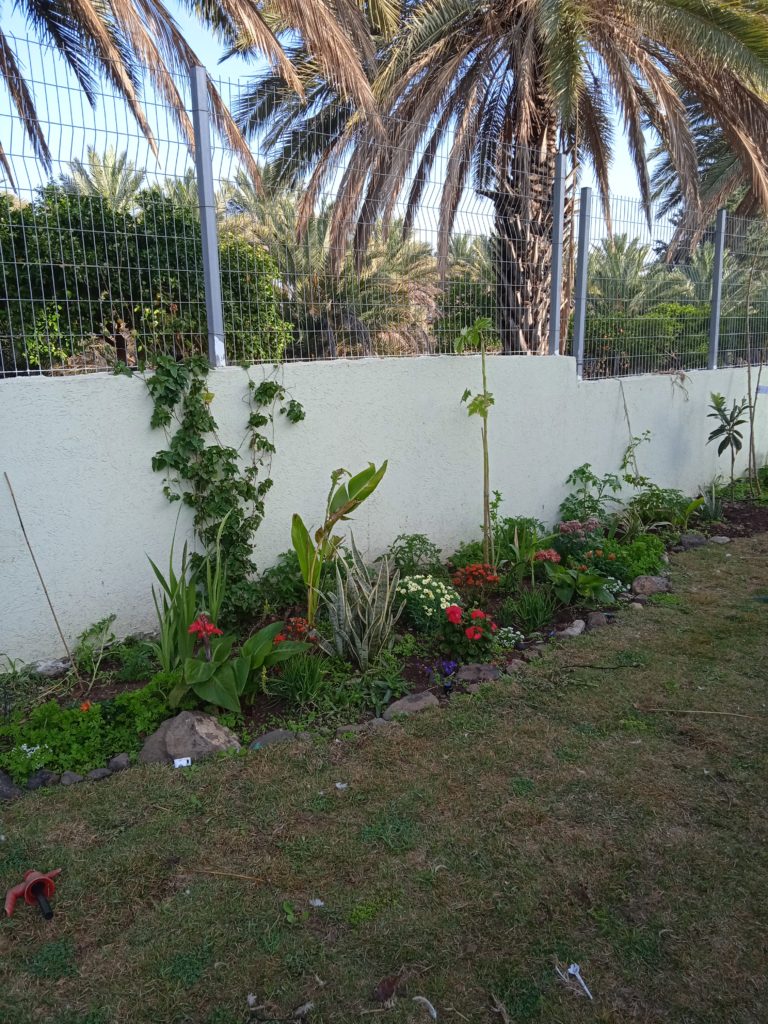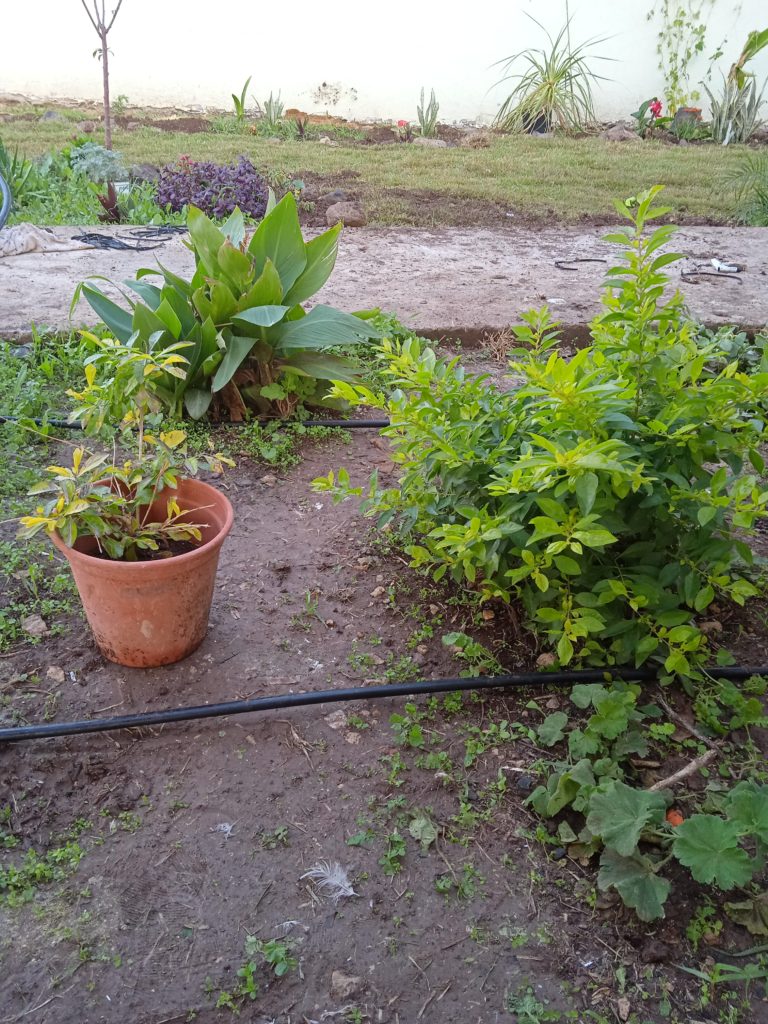For months I’ve felt increasingly pressured about having my eight year old home. In November I finally shared some of that here, and a month later I posted about finding a school for him.
I turned to the local municipality to arrange transportation for him, and feeling the intense need for him to be at school, was initially very frustrated at their laissez faire approach to getting this done. It’s been over two months and no progress has been made, so he is still home.
Now here is the very interesting thing. About two weeks after we found a school for him, I suddenly noticed that it didn’t feel hard to have him at home anymore. Not only that, but I’ve been really enjoying him!
This initially mystified me. I had been working on my mindset with regards to this issue; I wrote lists of things I appreciated about him, I did meditation and visualizations to keep my focus on all the wonderful things about him – and suddenly, with no conscious effort, I appreciate him being at home!
So what changed?? I did a lot of thinking about this, to figure out how and why this shift happened, and I think my experience will be helpful for others.
When I posted in November, I shared about one issue that was challenging for me. But there were others that I told myself I needed to deal with, but felt overwhelmed and alone to deal with them all.
Here’s an incomplete list of some of the things I told myself I should be doing:
- Digestive issues – These began when we moved here and began letting him have gluten on Shabbos. Even after we removed the gluten again, the issues remained. What to do? a) Figure out how to heal his digestive system while dealing with ongoing digestive issues. b) Do daily or at least weekly laser therapy sessions. What do you mean, you don’t have energy to do this? Okay, it’s true there’s a lot of laundry and cleanup that the issues entail throughout the day, but what kind of mother can’t get herself to do something this important for her child? You need to solve the problem at the root.
- Speech – Yirmi’s speech content is really good, his articulation is not so good. What do do? a) put him on Gemiini daily for online speech therapy (which means customizing videos to match what he needs); b) set up speech therapy in our new location, entailing lots of paperwork and logistics, then weekly travel to a city nearby. Oh, that feels overwhelming? You feel maxxed out and can’t do it? So now your child has to suffer because you feel tired. You know that the window for doing this is closing and he’s going to suffer for the rest of his life because you didn’t invest in helping him speak clearly when he was young.
- Reading – He loves to be read to but I haven’t taught him to read in either language. Yes, he knows the alphabet in Hebrew and English but he could be reading in both languages if he had a mother who was more competent.
- Hearing aids – after many months of a process that was protracted and expensive, we got hearing aids for him. But he pulls them out as soon as I turn my back. Since we have an issue of him leaving the home without telling us, I knew within an hour they would be lost somewhere outside, never to be found again. Solution: sit down with him daily first thing in the morning, keeping him entertained so he wouldn’t pull them out. Why is it so hard to spend two hours nonstop keeping him distracted? Just do it first thing in the day. Make it a priority. Then he’ll get used to them and you can increase the time gradually. You know how important hearing is to speech; of course he isn’t speaking clearly if he can’t hear clearly.
- Thyroid issues – He gained a lot of weight after we moved here. Figure out why, get his thyroid tested again. Find an alternative doctor who understands the thyroid. Change his diet.
- And of course, the eloping issue. Watch him every single minute of the day because he needs to be safe.
So now you’ve gotten a peek into my mind, some of the thoughts that were running through my head within a few minutes of waking up and continued throughout the day. Sometimes I just didn’t want to get up and face the day. It felt so hard and heavy, and no matter how much I would do, I had a constant knowing that there was so much that was important for him that needed to be done and I wasn’t doing it.
I would tell myself that I was doing what I could and it had to be enough, I would try to reduce the urgency. But thinking about all of this (and more) was always very close.
I thought it was dealing with the daily issues that was the pressure, that was hard (and it would have looked like it from the outside, too). But I was wrong.
It was my thoughts about how inadequate I was that was draining me and made everything feel overwhelming.
Why did those thoughts suddenly stop being an issue? Firstly, the feedback from the school staff. All I saw was what I wasn’t doing. But they didn’t see all that. They don’t expect parents to do the things that I expect of myself, and they were very understanding about why he isn’t wearing hearing aids, for example. No shaming at all. It was obvious to them that it was a very challenging issue, without me having to explain with more than two sentences.
Not only weren’t they shaming me, they were impressed with Yirmi’s focus, thinking skills, desire to learn, and intelligence. They told me more than once how it was obvious I had invested so much in both boys (since ds4 was there for the interview, too).
A friend who has an older child with T21 told me, ‘No one does what you do for your kids, no one I know expects of their child what you expect of yours.’ I’ve always shrugged off comments like this, because I’m sure people think that I do more than I do. It was really helpful to look at myself through someone else’s eyes and say, maybe they’re right. That replaced the voice saying ‘everyone can see you’re failing’. Not doing enough wasn’t wasn’t reality (though there remain many things that it would be nice if I did); it was my own made up story.
The second thing that changed was I stopped feeling pressured to take care of these issues, knowing that very soon I’d have people to work together with on them, or even a staff that would completely address them (eg speech therapy, supervision wearing the hearing aids). The weight of having to be everything, to know everything, to do everything was so, so heavy. It was a weight that I couldn’t lift and didn’t want to lift. But when I didn’t do it all, there was all that intense guilt and inadequacy.
Three – I dramatically cut my Facebook time around the end of November, and then deleted my account in the middle of January. And now I’m not seeing messages in my T21 groups from all those amazing mothers who are doing the things I’m not doing.
Without the negative messages replaying on a loop constantly, it’s not hard having Yirmi home anymore. In fact, I’m deeply enjoying him, knowing he is completely okay just as he is right now, that I don’t have to do any more than I am, and he doesn’t have to do any more than he is. And that feels amazing. (And I’m sure it feels good to him, too.)
It’s fortunate that I feel no urgency about sending him to school, since the pace the municipality is working – or not working – I don’t know when transportation to his school will be provided. Instead of feeling like I just can’t cope another day, I must have some help…it’s dramatically shifted for me and is all really okay.
It’s in the mind that most of our problems are created and solved.
Avivah



